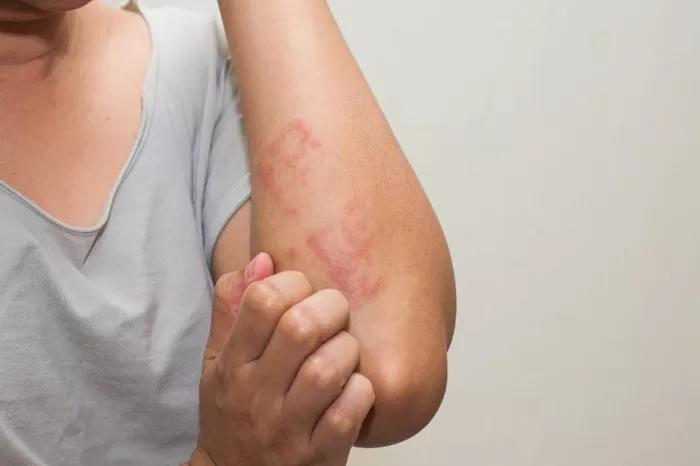Allergic rhinitis, commonly known as hay fever, is a prevalent condition characterized by inflammation of the nasal passages in response to allergens such as pollen, dust mites, or pet dander. Sneezing is one of the hallmark symptoms of allergic rhinitis, often accompanied by itching, nasal congestion, and a runny nose. While sneezing serves as the body’s natural defense mechanism to expel irritants from the nasal passages, frequent or prolonged sneezing can be bothersome and disruptive to daily life. In this article, we explore effective strategies to stop allergic rhinitis sneezing and find relief from this troublesome symptom.
Understanding Allergic Rhinitis Sneezing
Before delving into strategies to stop sneezing, it’s essential to understand why it occurs in the context of allergic rhinitis. When allergens enter the nasal passages, they trigger an immune response that leads to inflammation of the nasal mucosa. This inflammation irritates the nerves in the nasal lining, causing the body to release histamine—a chemical that induces sneezing as a protective mechanism to expel the allergen.
Identifying Trigger Allergens
The first step in managing allergic rhinitis sneezing is identifying and avoiding trigger allergens as much as possible. Common allergens include pollen, mold spores, dust mites, pet dander, and certain foods. Keeping a symptom diary can help pinpoint specific triggers and guide efforts to minimize exposure.
Creating an Allergy-Friendly Environment
Minimizing exposure to allergens in the home can help reduce sneezing and other allergy symptoms. Strategies for creating an allergy-friendly environment include:
1. Using allergen-proof mattress and pillow covers to protect against dust mites
2. Regularly vacuuming carpets and upholstery to remove allergens
3. Keeping windows closed during peak pollen seasons
4. Using air purifiers with HEPA filters to remove airborne allergens
5. Bathing pets regularly to reduce dander accumulation
Nasal Irrigation
Nasal irrigation, also known as nasal saline irrigation or nasal douching, involves flushing the nasal passages with a saline solution to remove allergens, mucus, and debris. This can help alleviate sneezing and nasal congestion by clearing the nasal passages and reducing inflammation. Nasal irrigation can be performed using a neti pot, squeeze bottle, or nasal irrigation device.
Over-the-Counter Medications
Several over-the-counter medications are available to help relieve allergic rhinitis symptoms, including sneezing. These include:
Antihistamines: These medications block the effects of histamine, reducing sneezing, itching, and nasal congestion. Common antihistamines include cetirizine (Zyrtec), loratadine (Claritin), and fexofenadine (Allegra).
Decongestants: Decongestants help reduce nasal congestion and sneezing by constricting blood vessels in the nasal passages. They are available in oral or nasal spray forms, but nasal spray decongestants should be used sparingly to avoid rebound congestion.
Intranasal corticosteroids: These medications reduce inflammation in the nasal passages, providing long-term relief from sneezing, nasal congestion, and other allergy symptoms. Examples include fluticasone (Flonase), mometasone (Nasonex), and triamcinolone (Nasacort).
Prescription Medications
For individuals with severe or persistent allergic rhinitis symptoms, prescription medications may be necessary. These include:
Leukotriene receptor antagonists: These medications block the action of leukotrienes, chemicals that contribute to allergic inflammation. Montelukast (Singulair) is a commonly prescribed leukotriene receptor antagonist for allergic rhinitis.
Immunotherapy: Immunotherapy, also known as allergy shots, involves gradually exposing the body to increasing doses of allergens to desensitize the immune system. This can help reduce allergic rhinitis symptoms, including sneezing, over time.
Natural Remedies and Alternative Therapies
Several natural remedies and alternative therapies may provide relief from allergic rhinitis sneezing, including:
Quercetin: Quercetin is a flavonoid with anti-inflammatory and antihistamine properties found in certain foods, such as onions, apples, and citrus fruits. It may help reduce allergic rhinitis symptoms, including sneezing.
Butterbur: Butterbur is an herbal supplement that has been shown to alleviate allergic rhinitis symptoms, including sneezing and nasal congestion. However, it may cause side effects and should be used with caution.
Acupuncture: Acupuncture involves the insertion of thin needles into specific points on the body to promote balance and alleviate symptoms. Some studies suggest that acupuncture may help reduce allergic rhinitis symptoms, including sneezing, but more research is needed to confirm its effectiveness.
Lifestyle Modifications
In addition to medical treatments and natural remedies, certain lifestyle modifications may help reduce allergic rhinitis sneezing, including:
1. Avoiding known trigger allergens
2. Keeping windows closed during high pollen seasons
3. Using air purifiers with HEPA filters in the home
4. Showering and changing clothes after spending time outdoors
5. Practicing stress-reduction techniques, such as meditation or yoga, as stress can exacerbate allergy symptoms, including sneezing
Conclusion
Allergic rhinitis sneezing can be bothersome and disruptive, but with proper management and treatment, relief is possible. By identifying trigger allergens, creating an allergy-friendly environment, using over-the-counter or prescription medications as needed, and exploring natural remedies and alternative therapies, individuals can effectively manage allergic rhinitis sneezing and improve their quality of life. If symptoms persist despite these interventions, it’s essential to consult with a healthcare professional for further evaluation and treatment. With a comprehensive approach to allergy management, individuals can find relief from sneezing and other allergy symptoms and enjoy a better quality of life year-round.
[inline_related_posts title=”You Might Be Interested In” title_align=”left” style=”list” number=”6″ align=”none” ids=”7105,7102,7099″ by=”categories” orderby=”rand” order=”DESC” hide_thumb=”no” thumb_right=”no” views=”no” date=”yes” grid_columns=”2″ post_type=”” tax=””]
































